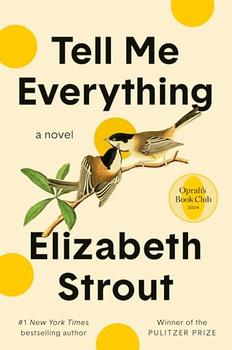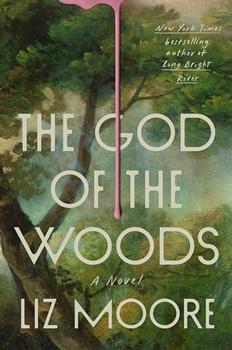
A Q&A with Muriel Mharie Macleod whose debut novel, set deep in the back country of early-20th-century Louisiana, tells the story of a missing child, a buried tin of coins, and a terrible secret.
Arletta, the young, black narrator of What the River Washed Away, is a strong, authentic voice. Readers may be especially surprised to learn that you are a mature white British writer. How did you discover Arletta's voice and how did you go about developing such strong narrative authenticity?
I began writing the novel in the first person from the start, and to a large extent I felt it was writing itself. (Many authors say that and I now know what they mean). Arletta's voice was strong for me and I wanted people to feel deeply for her, to be moved by her circumstances. When I "heard" her speak in my mind, her narrative drove me and the writing forward, which led me very early on to the issues of civil rights and one woman's story in that wider social context.
I have worked with Americans most of my life, in fact at Fulbright here in the UK, everyone was from the US except for two of us. Strangely, when I would ask two people how they would say "such and such," quite often I'd receive two different answers! "Burlap" and "sacking" being a case in point—so I used both! The language of 1920s Louisiana was something I could really sink my teeth into. I examined every sentence of my own characters, over and over again.
Arletta's relationship with her mother, Mambo, is a complex theme that you interweave throughout the novel. In what ways do you feel their mother/daughter relationship is a universal one, and in what ways is it unique to their time and place? Were your choices for their relationship based on any of your own experiences as a mother or a daughter?
Leaving Arletta alone was something Mambo could get away with because of the isolation of their cabin and the fact that relevant government agencies were not in place at the time. I tried to steer away from too clichéd a mother/daughter hate relationship by introducing moments of tenderness that could sustain Arletta. They argue easily, as family bonds allow, but they love one another and Mambo proves it in the end. Ultimately, Arletta's early isolation and independence enables her to cope with starting out in Africa.
My own mother came from a different world than I did. Born in 1924, she lived on the Isle of Lewis most of her life, and for her, a good marriage and secure family life were everything. I did often feel that I was the antithesis of her life; the security she gave me as a child enabled me to move to London at a young age, travel extensively and be independent. The opposite of Arletta! How strange, I never thought about it that way before!
You've mentioned elsewhere that What the River Washed Away airs the difficult subject of pedophilia while also being an uplifting story of survival. How important was the novel's setting to you as you developed the theme of pedophilia? Did this theme influence the choices you made for the time and place of Arletta's story?
I was drawn to the influence the threat of lynching would have in addition to the abuse. I was also interested in the natural goodness of people who supported equality and civil rights, like the character Mrs. Archer-Laing. When I "packaged" up my interests, the setting for the story became clear. There is a road in Louisiana called Sugar Shack Road, and it always stayed in my mind – that's how I came up with Sugarsookie Creek. The creative process is what drives me once I have my story.
Abuse, racism, revenge, religion and the supernatural, healing and survival – this novel covers some big, heavy-hitting themes, yet it remains an intimate and highly readable story about a particular woman in a specific place and time. How difficult was it to obtain this kind of macro-micro balance?
I'm glad you asked this. I always feel that one person's story can really illustrate history, bring to light what was really happening, remove it from the intellectual process. When I was at school, some time ago now admittedly, history was a very dry, mostly political subject, and never dealt with my own island/clan background. I found it boring. I learned about the Russian Revolution by reading the lives of Nicholas and Alexandra. The French Revolution came alive for me in a biography of Marie Antoinette.
I always wanted the individual experience of Arletta to over-ride the sociopolitical arena she lived in, but it had to be there in the background to determine her actions. I would hope that some of the sociopolitical content will intrigue some readers enough to enquire further.
How did your own experience as a single parent inform your writing?
I never felt that it did. I had a very different life in providing for my children. I worked long hours but spent a lot of time with them. They tell me they have wonderful memories of their childhood, which Arletta would not have had at all.
I feel I have empathy for the "underdog" in society. Perhaps that comes from being a Celtic island clanswoman brought up on a history of Highland Clearances and the horrendous treatment of the clans by distant, faceless "outsiders" who assume superiority, and a careless authority. I feel I have an insight into that sort of human behavior, and I think all my work will focus on the injustices caused by it in one way or another.
What's next for Muriel Mharie Macleod?
I am in the process of moving back the Outer Hebrides Island of Scotland, where I am from. There I will continue working on my full-time career as a writer.
Any teasers for your next book that we can share with your readers?
When I lived in Port of Spain, Trinidad, I once found an abandoned baby in the bush. I've been working on a story that revolves around that child, imagining what might have become of their life.
Unless otherwise stated, this interview was conducted at the time the book was first published, and is reproduced with permission of the publisher. This interview may not be reproduced or reprinted without permission in writing from the copyright holder.




Your guide toexceptional books
BookBrowse seeks out and recommends the best in contemporary fiction and nonfiction—books that not only engage and entertain but also deepen our understanding of ourselves and the world around us.